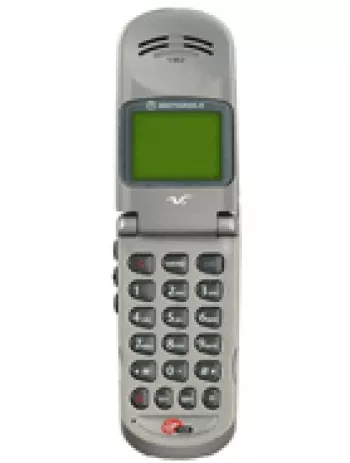
Introduction to Motorola WX160
The Motorola WX160, released in November 2009, is a quintessential feature phone that embodies simplicity and functionality. Designed for basic communication, it lacks many of the advanced features seen in modern smartphones, yet offers a reliable and straightforward experience for users who prioritize phone calls and text messaging over multimedia capabilities and internet connectivity. The WX160, with its minimalistic design and essential features, serves as a representation of an era where mobile phones were primarily communication tools rather than comprehensive digital devices.
Design and Build
In terms of design, the Motorola WX160 measures 106 x 46 x 14.5 mm and weighs a mere 65 grams, making it compact and lightweight. Its design philosophy is focused on simplicity, with a monochrome graphic display that features a color background. This 1.3-inch screen has a resolution of 64 x 96 pixels, yielding a pixel density of approximately 89 ppi. Though its design might seem rudimentary by today's standards, it was practical and sufficient for the phone's intended uses at the time of its release.
Display Features
The 1.3-inch display of the Motorola WX160 is a monochrome graphic type, making it suitable for basic display needs such as viewing text messages and phone menus. The monochrome nature of the display ensures prolonged battery life, a crucial feature for users interested in long standby times and talk durations. Although the screen-to-body ratio is approximately 10.3%, this was adequate for a device focused on simplicity and efficiency.
Network and Connectivity
Equipped with GSM technology, the WX160 supports dual-band 2G networks, specifically GSM 900 and 1800. It does not feature GPRS or EDGE, which are standard for data services. This means that the device is intended solely for voice calls and SMS, lacking capabilities for browsing or data-intensive applications. The absence of advanced connectivity options, such as Bluetooth or WLAN, further underscores its focus on basic mobile phone functionalities.
Memory and Storage
The device comes with a phonebook capacity of 500 entries, which is substantial for storing essential contacts. It also logs call records, including 10 dialed, 10 received, and 10 missed calls. However, the WX160 does not support memory cards, a limitation that aligns with its purpose as a simple calling and messaging device, devoid of multimedia or heavy data storage functionalities.
Sound and Audio
Audio features on the WX160 include a loudspeaker. However, it does not have a 3.5mm jack, which limits the use of wired headphones. This sound setup is adequate for its primary function: alerting users to incoming calls and messages. The phone's audio capabilities focus on clarity and functionality rather than entertainment.
Communications and FM Radio
While the Motorola WX160 lacks several modern communication features, such as Bluetooth, positioning capabilities, and internet browsing, it compensates with an FM radio equipped with RDS. This feature provided entertainment and information for users via radio broadcasts, further enhancing the phone’s utility within its target market.
Battery Life
The WX160 is powered by a removable Li-Ion 650 mAh battery. This capacity offers a standout attribute for the device: a substantial standby time of up to 400 hours and a talk time of up to 8 hours. This impressive battery performance is a key selling point, especially for users requiring a reliable phone for extended periods without frequent charging.
Messaging and Other Features
The primary messaging functionality is SMS, consistent with the phone's focus on basic communication. The device does not include internet browsing or advanced messaging capabilities. However, it comes with simple games, providing a basic level of entertainment. The lack of Java support aligns with the phone's focus on simplicity and essential features.
Price and Market Position
Initially priced at about 30 EUR, the Motorola WX160 was positioned as an affordable mobile device. This pricing strategy made it accessible to a broad audience seeking basic mobile communication without the frills of modern smartphones. The phone's affordability and simplicity appealed to users in need of a straightforward device for essential communication tasks.
Conclusion
The Motorola WX160 stands as a testimony to an era where mobile phones were cherished for their fundamental features. With a sturdy design, long battery life, and reliable communication features, it met the core needs of its users. While it may seem outdated in a world dominated by smartphones, the WX160 remains a nostalgic reminder of simpler times in mobile communication history.
Key Features of Motorola WX160
- Compact and lightweight design (65 g).
- Supports GSM 900 / 1800 bands.
- Monochrome graphic display with color background.
- FM radio with RDS for entertainment on the go.
- Removable Li-Ion 650 mAh battery with long standby time (up to 400 h) and talk time (up to 8 h).
- Affordable price (about 30 EUR).
Disadvantages of the Motorola WX160
- No support for GPRS or EDGE; lacks mobile internet connectivity.
- Monochrome graphic display with a small screen size of 1.3 inches.
- Low resolution screen at 64 x 96 pixels, resulting in lower display clarity.
- No expandable storage; limited to 500 phonebook entries.
- Lacks a camera for taking photos or videos.
- No 3.5mm headphone jack; limits to proprietary audio solutions.
- No WLAN or Bluetooth, which limits wireless connectivity options.
- No GPS or location services available.
- Browser is not supported, restricting internet usage.
- No Java support for running Java applications.
- The phone has been discontinued, potentially affecting support and service options.

View Also
More Phones
All Rights Reserved +14266 Phones © Mobilawy 2025

























